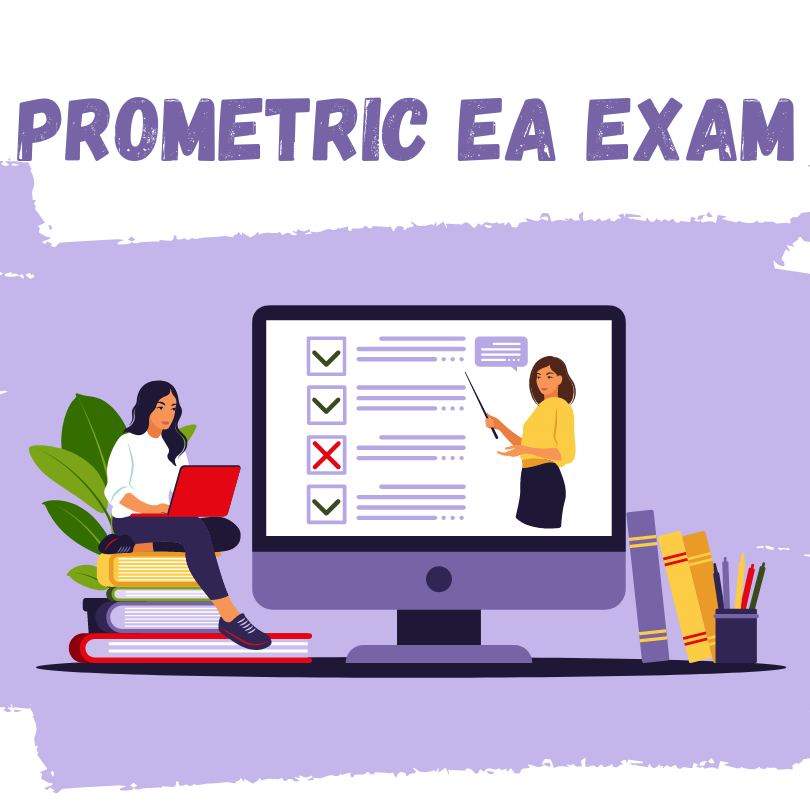Become an Enrolled Agent: Step-by-Step Guide
Passing the Enrolled Agent (EA) exam opens the door to...

An enrolled agent license is a federal credential that grants individuals the authority to represent taxpayers before the IRS effectively. This designation sets enrolled agents apart from other professionals in the tax realm, such as CPAs and attorneys. Enrolled agents have the distinct advantage of possessing a federal license, which permits them to represent taxpayers across state boundaries concerning federal tax matters. This unique status empowers enrolled agents to negotiate with the IRS during examinations and appeals, sign consents, and execute agreements on behalf of their clients.
The advantages of holding an enrolled agent license extend well beyond mere representation. In today’s intricate tax landscape, enrolled agents play a vital role in assisting taxpayers with IRS collection activities. Additionally, they enjoy the potential for a limitless income and a career that remains resilient even in times of economic uncertainty, making it a compelling choice for individuals seeking a stable and lucrative profession within the taxation sector.
For instance, envision a self-employed individual receiving an IRS notice regarding a discrepancy in their tax return. Recognizing the complexity of the situation, they opt to seek professional assistance and engage the services of an enrolled agent. This enrolled agent diligently scrutinizes the individual’s financial records, acts as their intermediary with the IRS, and skillfully negotiates a resolution that minimizes potential penalties and additional tax liabilities. The enrolled agent’s expertise and representation prove invaluable in navigating this potentially stressful scenario and achieving a favorable outcome.
To become an enrolled agent, individuals must meet specific requirements stipulated by the IRS. These requirements encompass passing the IRS Special Enrollment Examination (SEE) or acquiring five years of relevant employment experience with the IRS. The SEE is a comprehensive three-part examination that covers a wide array of topics related to individuals, businesses, representation, practices, and procedures. This examination is administered by Prometric on behalf of the IRS.
The process of obtaining an EA license involves several structured steps. Initially, individuals need to register for the SEE and diligently prepare for each segment of the exam. Resources such as enrolled agent study materials, online test banks, and practice exams provided by reputable organizations like Fast Forward Academy can significantly aid in the preparation process. By focusing on one section at a time, employing enrolled agent study materials effectively, and regularly taking practice exams to gauge preparedness, individuals can enhance their chances of successfully passing the exam on their initial attempt.
As an example, consider a recent college graduate aspiring to embark on a career as an enrolled agent. They commence by reviewing the IRS’s stipulated requirements to ascertain their eligibility to take the SEE. After registering for the exam, they construct a meticulously planned ea study material regimen that outlines the topics necessitating coverage and allocates adequate time for each section. Employing study guides and online test banks, they systematically delve into each segment of the examination. Regular practice exams help them gauge their progress and steadily build their confidence, thus improving their likelihood of securing the coveted EA license.
Earning an EA license stands as a substantial professional milestone that opens doors to valuable opportunities in representation and career advancement. The EA designation carries immense prestige within the tax industry, setting individuals apart and broadening their clientele base. Enrolled agents possess the authority to represent taxpayers in any state concerning federal tax matters, a privilege that distinguishes them from CPAs and attorneys who may possess limited representation rights.

The possession of an enrolled agent license bestows numerous benefits upon individuals who venture into this profession. One of the most significant advantages is the potential for unlimited income enjoyed by enrolled agents. Their ability to represent taxpayers across state lines regarding federal tax issues allows them to expand their client base and offer their services to a broader audience. This increased demand for their expertise often translates into higher fees and greater financial success.
Furthermore, enrolled agents possess the authority to negotiate with the IRS during examinations and appeals, sign consents, and execute agreements on behalf of taxpayers. This representation authority empowers enrolled agents to advocate fiercely for their clients and help them secure the most favorable outcomes in their interactions with the IRS. It also grants them the ability to assist taxpayers with complex IRS collection activities, a process that can be intricate and challenging.
For instance, consider a small business owner who finds themselves facing an IRS audit. They decide to engage the services of an enrolled agent to represent them during this daunting process. The enrolled agent, armed with an in-depth understanding of tax laws and substantial experience in navigating the IRS’s intricacies, effectively guides the business owner through the audit proceedings. They provide valuable guidance, compile essential documentation, and act as a liaison with the IRS on the business owner’s behalf, ensuring the best possible resolution for their client.
Another advantage of holding an enrolled agent license lies in the credibility it bestows and the heightened expertise it imparts. Enrolled agents are required to successfully pass a comprehensive examination covering various facets of taxation. This rigorous examination process guarantees that enrolled agents possess a firm grasp of tax laws and regulations. Clients often seek the services of enrolled agents due to their specialized knowledge and the assurance that comes with the EA designation.
The enrolled agent examination, commonly referred to as the Special Enrollment Examination (SEE), comprises three distinct parts and is administered by Prometric on behalf of the IRS. Each part of the examination delves into different facets of taxation, representation, and tax practices and procedures. The exam features multiple-choice questions presented in varying formats.
The initial part of the examination concentrates on individual taxation, encompassing topics such as filing requirements, income, deductions, and tax credits. The second segment of the exam zeroes in on business taxation, addressing areas such as partnerships, corporations, estates, and trusts. The concluding section of the exam explores representation, practices, and procedures, touching upon subjects such as ethics, circular 230 regulations, and the rights and responsibilities of enrolled agents.
To ensure success in the enrolled agent examination, a well-structured ea study plan is crucial. This plan should allocate ample time for each segment of the examination and take into account the candidate’s strengths and weaknesses. Utilizing enrolled agent study material, online test banks, and practice exams provided by reputable organizations can substantially enhance the study process.
As an example, let’s contemplate an individual preparing to tackle the enrolled agent examination. They embark on their journey by meticulously reviewing the IRS’s content outline, which provides an exhaustive breakdown of the topics covered in each part of the exam. Armed with this understanding, they partition their study time based on the weightage allocated to each section. For instance, if Part 1 carries a higher weightage, they allocate more study time to that specific section. This strategic approach ensures that the candidate efficiently allocates their time and resources, placing emphasis on areas that will have the greatest impact on their performance in the exam.
In addition to the content outline, candidates can harness the potential of study guides, online test banks, and practice exams offered by reputable organizations like Fast Forward Academy. These resources offer comprehensive coverage of the exam topics, present practice questions to evaluate knowledge and comprehension, and replicate the examination environment. By incorporating these resources into their study plan, candidates can bolster their preparation and approach the examination with heightened confidence.
Utilizing reputable study materials is essential for anyone aiming to achieve an enrolled agent license through the IRS EA Exam. Creating a well-structured study plan is imperative for effective preparation for the enrolled agent examination. Such a plan aids individuals in staying organized, allocating adequate time to each section of the exam, and ensuring comprehensive coverage of the examination topics.
To craft a study plan, candidates should commence by thoroughly acquainting themselves with the IRS’s content outline for the examination. This outline furnishes precise details regarding the specific topics and subtopics featured in each section of the examination. This familiarity enables candidates to discern the areas demanding their focused study efforts. Review sessions play a crucial role in a study plan; ensuring knowledge retention is key to earning an enrolled agent license through the IRS EA Exam.
Subsequently, individuals can allot their study time in accordance with the weightage assigned to each section. If one section carries greater importance, it warrants more dedicated study hours. This strategy ensures the efficient allocation of time and resources, focusing on the segments with the most significant impact on exam performance.
Additionally, candidates can harness the potential of study guides, online test banks, and practice exams proffered by reputable organizations such as Fast Forward Academy. These resources offer exhaustive coverage of the examination topics, provide practice questions for assessing comprehension, and recreate the examination environment. By integrating these resources into their study plan, candidates can augment their preparation and bolster their confidence as they approach the enrolled agent examination.
As an illustration, let’s envision an individual gearing up to tackle the enrolled agent examination. They initiate the process by meticulously reviewing the IRS’s content outline, pinpointing areas demanding their concentrated study efforts. Subsequently, they devise a study plan that allocates dedicated study time for each section of the examination, with extra emphasis on sections carrying greater weightage. They rely on a comprehensive ea study guide to delve deeply into the examination topics and make use of an online test bank to practice answering exam-style questions. To simulate the actual examination environment and identify areas requiring further attention, they also partake in practice exams. By adhering to this structured study plan, the individual optimizes their chances of acing the enrolled agent examination.

While both the enrolled agent license and CPA certification are prestigious designations in the accounting world, their primary focus and qualifications differ significantly. Although both enrolled agents and Certified Public Accountants (CPAs) deal with taxation, significant distinctions set these two designations apart. Enrolled agents specialize primarily in taxation and possess the authority to represent taxpayers before the IRS. Their expertise revolves around tax-related matters, encompassing tax planning, preparation, and representation.
In contrast, CPAs have a broader scope of expertise that extends beyond taxation to encompass various financial and accounting facets. CPAs undergo a comprehensive educational and examination process that covers diverse areas of accounting, including financial accounting, auditing, and managerial accounting. They are licensed by state boards of accountancy and can offer an extensive range of financial services, including tax planning and preparation.
The pivotal difference between enrolled agents and CPAs lies in their representation authority. Enrolled agents have the authority to represent taxpayers before the IRS in any state concerning federal tax matters. They can engage in negotiations with the IRS during examinations and appeals, sign consents, and execute agreements on behalf of taxpayers. This representation authority empowers enrolled agents to advocate on behalf of their clients and guide them through the intricacies of the tax system.
In contrast, CPAs do not wield the same representation authority as enrolled agents. While they can provide tax planning and preparation services, their capacity to represent clients before the IRS is restricted. CPAs may need to collaborate with enrolled agents or tax attorneys to furnish comprehensive representation services. Those with an enrolled agent license are federally authorized to represent taxpayers before the IRS, while CPAs, although well-versed in tax, have their license jurisdiction typically limited to the state in which they are licensed.
For example, contemplate an individual confronted with an IRS tax audit. They opt to enlist either an enrolled agent or a CPA to represent them throughout the audit process. If they choose to collaborate with an enrolled agent, they gain access to the agent’s specialized knowledge in taxation and their representation authority before the IRS. The enrolled agent capably communicates with the IRS on the individual’s behalf, negotiates a resolution, and furnishes guidance throughout the audit. Alternatively, if they opt for the services of a CPA, the CPA can provide tax planning and preparation services but might need to partner with an enrolled agent or tax attorney for representation needs.
Enrolled agents wield the authority to represent taxpayers before the IRS, rendering them invaluable advocates in tax-related matters. This representation authority empowers enrolled agents to negotiate with the IRS during examinations and appeals, sign consents, and execute agreements on behalf of taxpayers.
In contrast, unenrolled return preparers, individuals lacking the enrolled agent license or other professional designations, possess limited capabilities in practicing before the IRS and cannot represent taxpayers in specific situations. While they can offer tax preparation services, their representation authority is circumscribed. This limitation proves a substantial disadvantage for taxpayers requiring comprehensive representation and assistance with IRS collection activities.
The advantage of possessing an enrolled agent license lies in the representation authority it furnishes. Enrolled agents can assist taxpayers with IRS collection activities, including the negotiation of installment agreements and offers in compromise. Their profound understanding of tax laws and procedures positions them as capable guides for taxpayers navigating the collection process, guaranteeing the best conceivable outcome.
As an example, ponder a taxpayer burdened with a substantial backlog of taxes owed to the IRS. They elect to seek professional aid and enlist the services of an enrolled agent to represent them. The enrolled agent scrutinizes the taxpayer’s financial circumstances, orchestrates negotiations with the IRS to establish an attainable installment agreement, and steers the taxpayer through the necessary steps to resolve their tax liability. The representation authority and expertise wielded by the enrolled agent confer peace of mind upon the taxpayer and offer a clear path to resolving their tax dilemmas.
Enrolled agents possess a multitude of advantages that distinguish them from other tax professionals. Chief among these advantages is their profound expertise in tax preparation. Enrolled agents undergo a rigorous examination process to obtain their license, assuring they possess a comprehensive grasp of tax laws and regulations.
This specialized knowledge enables enrolled agents to offer a wide gamut of tax services, encompassing tax planning, preparation, and representation. Their proficiency in tax matters makes them a sought-after choice for individuals and businesses seeking comprehensive tax assistance.
Another significant advantage of acquiring an enrolled agent license lies in the higher income potential compared to other tax professionals. The unrestricted representation authority and expanded financial practice that enrolled agents enjoy can lead to an upswing in demand for their services and elevated fees. The ability to represent taxpayers across state boundaries concerning federal tax issues presents enrolled agents with the prospect of enlarging their client base and offering their expertise to a broader audience.
For instance, contemplate an individual contemplating a career in taxation, exploring various professional designations. They learn of the advantages associated with becoming an enrolled agent, including the profound tax preparation skills and representation authority that accompany the designation. Furthermore, they discover that enrolled agents possess a greater income potential compared to other tax professionals. Armed with this knowledge, they opt to pursue an enrolled agent license, setting their sights on maximizing their career prospects and financial achievements in the field of taxation.
Enrolled agents are not mandated to possess college degrees; however, they must engage in continuing education every 36 months to uphold their license. The IRS establishes the minimum continuing education prerequisites for enrolled agents, ensuring they remain updated on tax regulations and sustain their competence in tax matters. The IRS governs the criteria for obtaining an enrolled agent license, ensuring that agents possess the necessary expertise in tax regulations.
Moreover, members of the National Association of Enrolled Agents (NAEA) must complete more extensive continuing education than the IRS’s prerequisites demand. This additional educational requirement ensures that NAEA members stay at the forefront of the tax profession, maintaining a heightened level of expertise. For those with an enrolled agent license, staying updated with the latest tax laws is crucial, which is why continuing education is mandated.
Continuing education assumes a pivotal role in the professional development of enrolled agents. It enables them to stay abreast of the ever-evolving tax laws, regulations, and procedures, guaranteeing their ability to provide accurate and dependable advice to their clients. By investing in continuing education, enrolled agents underscore their commitment to preserving their proficiency as tax professionals and delivering top-tier service to their clients. With an enrolled agent license, you are recognized as a tax expert, but this prestige comes with the responsibility of ongoing education.
For instance, visualize an enrolled agent who has been practicing for several years. Recognizing the significance of remaining current with tax regulations, they decide to pursue additional continuing education that surpasses the IRS’s minimum requirements. They join the NAEA and actively partake in diverse educational opportunities, such as attending seminars, webinars, and conferences. By investing in their professional growth through continuing education, they augment their knowledge base, stay abreast of the latest tax developments, and position themselves as trusted authorities in the field. The National Association of Enrolled Agents offers various courses to help agents meet their continuing education requirements and retain their enrolled agent license.

The outlook for enrolled agents hinges upon shifts in industry regulations and the demand for tax services. As tax laws and regulations continue to evolve, the need for qualified tax professionals, including enrolled agents, remains robust. The intricacies of the tax system and the growing demand for adept representation make enrolled agents indispensable to individuals and businesses seeking comprehensive tax assistance.
In summation, securing an enrolled agent license offers a multitude of advantages and opportunities in the realm of tax representation. Enrolled agents hold a federal license that permits them to represent taxpayers in any state concerning federal tax matters, setting them apart from CPAs and attorneys. Endowed with unlimited income potential, representation authority, and an expanded financial practice, enrolled agents possess the potential to attain financial success and exert a profound influence on their clients’ financial well-being.
The credibility, heightened expertise, and specialized knowledge that the enrolled agent designation confers provide a competitive edge within the tax industry. Enrolled agents possess the authority to negotiate with the IRS, sign consents, execute agreements, and assist taxpayers with IRS collection activities. This representation authority empowers enrolled agents to advocate for their clients and deliver invaluable support throughout the tax process.
By pursuing an enrolled agent license, individuals can position themselves for a gratifying career in tax representation. The benefits of limitless income potential, representation authority, and an expanded financial practice render it an enticing choice for those with a passion for taxation and a desire to assist others in navigating the intricate world of taxes. Embark on the journey to becoming an enrolled agent and elevate your career to new heights.

Passing the Enrolled Agent (EA) exam opens the door to...

The journey to becoming an Enrolled Agent is both challenging...

Imagine gazing at a promising future as a tax professional.However,...

Achieving the status of an Enrolled Agent is a significant...

Are you envisioning a successful career as an Enrolled Agent?It's...